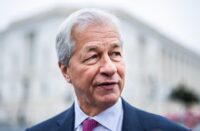The Archbishop of Canterbury, Justin Welby, has stepped down amid a controversy related to concealing abuse, marking a historic departure for the Church of England. This is the first time a leader of the Church and the broader Anglican Communion, which encompasses 85 million Christians globally, has been compelled to resign in such circumstances, according to religious scholars.
Welby, who has been in his role since 2013, announced his resignation with a heavy heart, stating that the exact timing of his exit would be determined following a review of his existing commitments. The 68-year-old Archbishop was anticipated to retire around the age of 70.
Following his resignation, a consultation process will begin to determine the needs of the Church of England and the Anglican Communion. This will lead to the formation of a Crown Nominations Committee, which will be responsible for selecting candidates. The committee will comprise 17 voting members, including the Archbishop of York, a bishop elected by the House of Bishops, and representatives from the Anglican Communion, the Diocese of Canterbury, and the church’s governing body, the General Synod. The committee will be chaired by an Anglican, ideally prominent in public life, chosen by Prime Minister Keir Starmer.
It is thought that assembling the committee could take a few months, and the entire process up to six months, according to David Thompson, emeritus professor of modern church history at the University of Cambridge.
Once the committee has made a recommendation, Starmer will review it. If the Prime Minister approves, he will present the candidate’s name to King Charles, the supreme governor of the Church of England.
Among the possible successors to Welby are three bishops: Martyn Snow, Bishop of Leicester; Graham Usher, Bishop of Norwich; and Guli Francis-Dehqani, Bishop of Chelmsford. If chosen, Francis-Dehqani would be the first woman to become Archbishop.
The new Archbishop is likely to encounter the same ongoing conflicts around same-sex relationships that Welby faced during his tenure. This contentious issue has not only divided the broader Anglican Communion, where homosexuality is considered taboo in certain African churches, but also the Church of England itself.
Welby’s resignation highlights the Church of England’s recognition of the need for change. “For almost twelve years, I have attempted to implement improvements,” Welby said in his resignation letter. “It is now up to others to assess what has been accomplished.”




